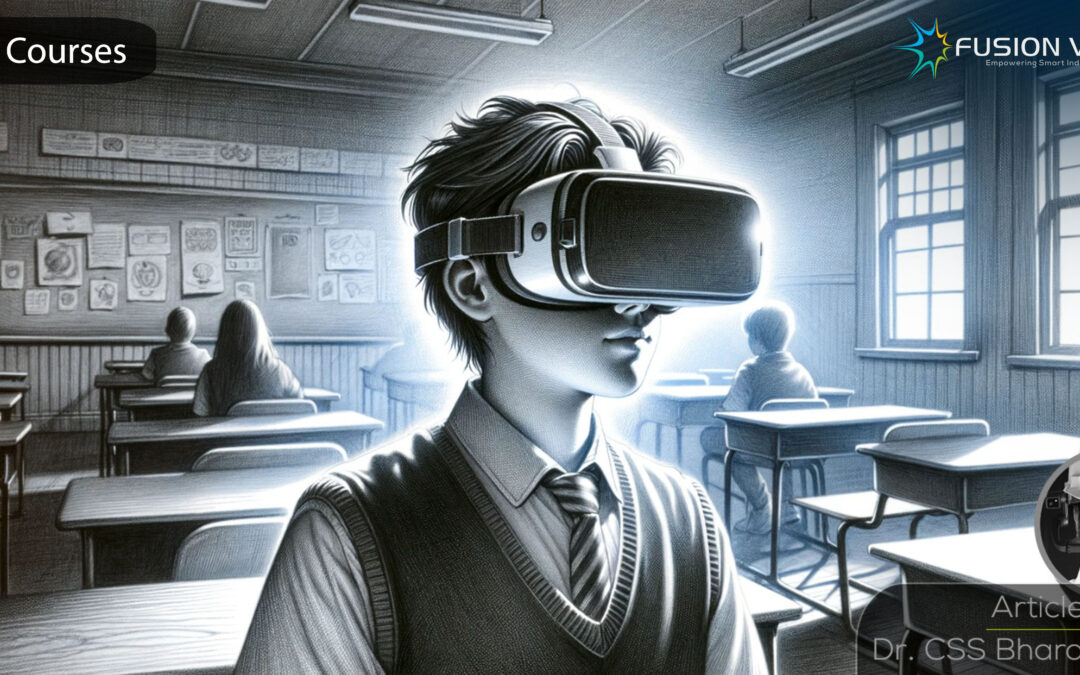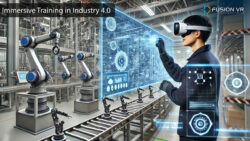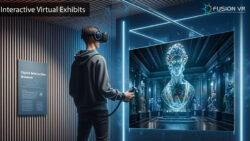Let me clarify at the outset that this piece is about courses that teach you virtual reality. It is not about courses that use virtual reality to learn about stuff. Both types of courses are important, but you need to learn the former in order to develop the latter. The benefits of using virtual reality for learning though well known is worth repeating here. Virtual reality-based training courses are more effective than conventional classroom training courses and ensure greater understanding and retention of the subject matter. This aspect of VR training is fueling the demand for VR developers which in turn is driving the demand for learning virtual reality software training.
The tech industry plays a key role in the growth and development of many sectors of the economy. The innovation coming from the technology sector drives the growth of many industries. The future of the manufacturing industry is driven by Industry 4.0 or the Fourth Industrial Revolution. It relies on many key technologies such as VR and AR that have primarily come from the tech industry. The use of virtual reality in the economy is growing tremendously fast. They are used in education, manufacturing, mining, power generation, entertainment, automotive, museums, marketing etc. The use cases for virtual reality in these areas of the economy continue to grow. The use of virtual reality coupled with advances in big data analytics and artificial intelligence is poised to revolutionize the tech scene across the globe. Thanks to the popularity of virtual reality in the gaming industry, the affordability of virtual reality devices has been more to large sections of the population. The advances and the cost reductions achieved with VR hardware is very easy to see. The popularity of the metaverse and the benefits it promises also played a role in catalyzing the interest in virtual reality.
The economic growth that we see around us and the advances in technology have driven the need to adopt virtual reality on a large scale. The benefits of virtual reality lies in establishing a competitive advantage in the marketplace for many companies. Human capital remains one of the most important resources to establish a competitive advantage. And virtual reality is probably the most important of Industry 4.0 technology that enables companies to maximize the potential of their human capital to benefit the top line and bottom line of organizations.
The demand for virtual reality and augmented reality engineers is growing at a whopping 1400%. There is a shortage of talent to meet the demand and it’s in the interest of the overall economy that this demand is met. More than 23 million jobs in the VR AR sector are expected by the year 2030. If this demand is not met, the growth of the industries needing VR AR solutions will slow down and the job creation will move to other countries that are better equipped to support that demand. We know very well that investments follow states and countries that have the necessary infrastructure and the talent pool. The burden of developing this rests with both the government, academia and the industry. A collaborative effort is required to support actions necessary to fulfil this demand.
VR courses are helping to create the next wave of VR AR engineers and developers who have the skills, knowledge and competencies to create VR applications and solutions. They will be experts in the programming languages needed for VR, 3D modeling, animation, user experience, user interface design etc. They will also be drawn with domain experience to help devise solutions with a better understanding of the needs of that domain. The industry will be churning out solutions, VR simulations etc. and continue to be a top draw for investment and jobs for the services sector. This is bound to drive increased innovation in the tech industry and power further growth in the future. The innovation is gradually playing out in the realm of the Metaverse and the prospect of exciting social, economic and technological opportunities await.
The demand for VR AR engineers is driving the tech training industry. There is a sudden explosion of training providers rushing to capitalize on the opportunities. Many of these could be fly-by-night operators interested to cash in on the trend. They could also be without the in-depth expertise needed to deliver the sophisticated training required to churn out competent VR AR engineers. There are also many online course providers who wish to cash in on the convenience factor that is sought out by young professionals. While these kinds of players gradually fade out over a period of time, it does impact the quality of services and projects delivered by the tech industry. Institutions and industry leaders need to collaborate on designing courses that best meet the needs of the industry and its growth ambitions.
One such initiative that is truly collaborative in its design and execution is the Industry Academic Alliance Program (IAAP) that is wholly aimed at developing the critical talent pool in India. This initiative is the result of what industry insiders like Fusion VR have understood about the potential of virtual reality applications in the future of almost any sector of the economy. The IAAP team has recognized that mere recognition of potential is not good enough and more actions are needed to realize that potential. That potential translates into millions of jobs and billions in revenue. In a nation like India, both of those possibilities matter.
Fusion VR and ARK Info Solutions have partnered in this effort to usher in the IAAP in India. Their efforts have led to several institutions across the length and breadth of this nation joining the alliance. The program is aimed at establishing a strong foundation for the future of the virtual reality industry in India. The initiative will equip the engineering colleges and universities who partner in IAAP with the infrastructure and human capital needed to execute it successfully. The IAAP is designed to provide the much needed end to end support for institutions with the design and installation of high quality VR AR labs at partner institutions. Their expertise in setting up and delivering the infrastructure is crucial for everything that follows. They also provide continuous technical support to ensure the infrastructure is maintained and delivers peak performance for the institutions without the faculty losing sleep about it. More importantly, the IAAP provides the technical training and knowledge base for the existing faculty of these institutions to teach and train their students. There is a real need for the industry to keep the academic faculty updated on the advances in the field so that they can effectively train the future engineers in VR and AR.
The IAAP offers a wide range of VR design courses that would meet the varied needs of the learning community. It is geared not only to train students but also young professionals who wish to gain additional skills and VR certification programs. The program offers courses that enable students to achieve a major, minor or a specialization in AR and VR as part of their regular academic curriculum. In addition, it also provides others with short term certificate and diploma programs.
The future of Virtual Reality courses is quite bright and its impact on the future of the tech industry is hugely positive. The opportunities for the tech industry to capitalize on deploying virtual reality technology is immense. We are only limited by our imagination and the size of the talent pool. We are quite positive that the initiatives taken will bear fruit very soon.





